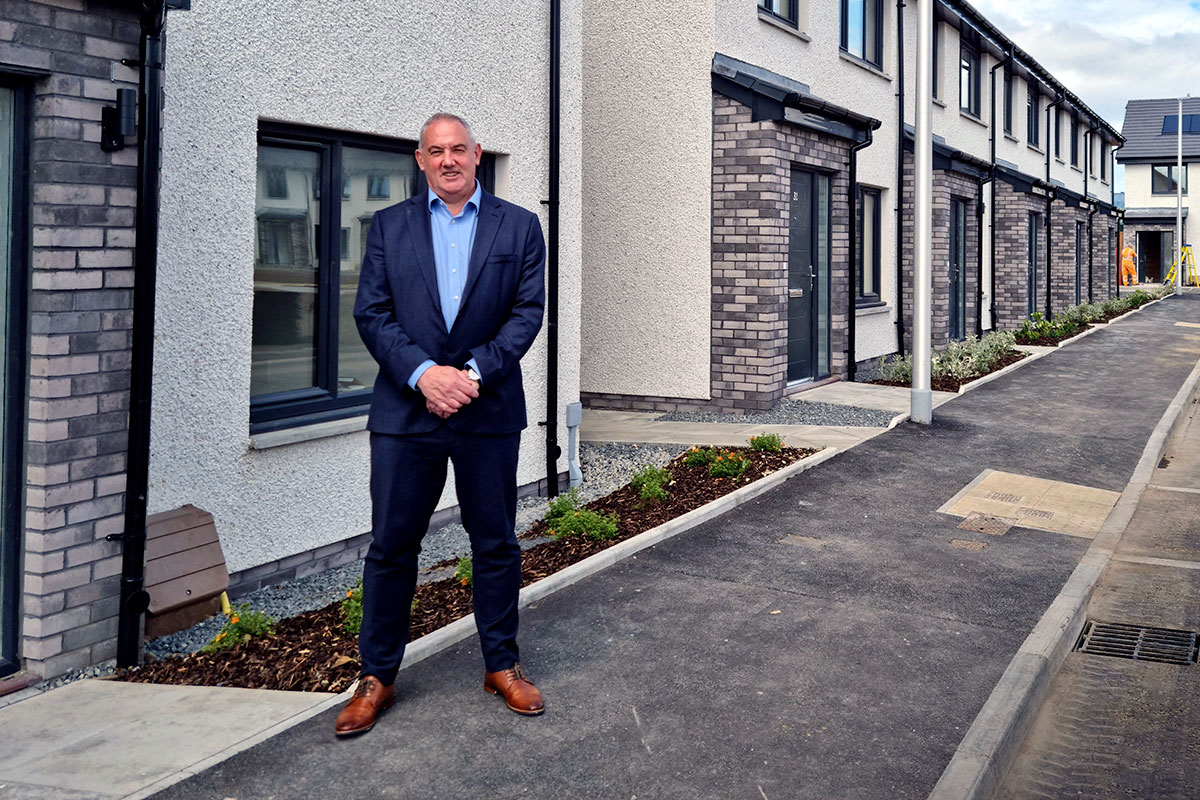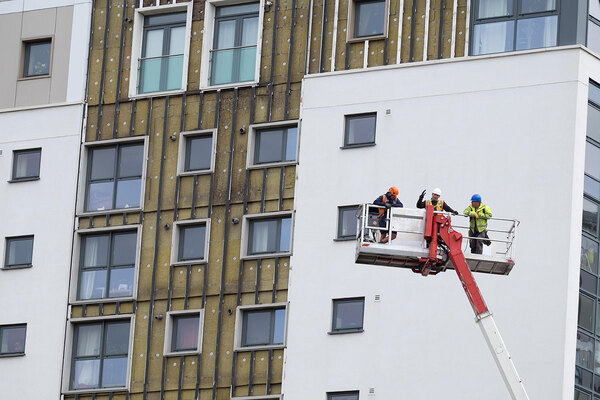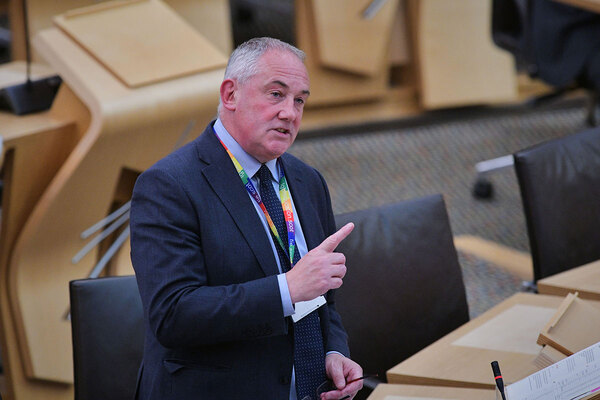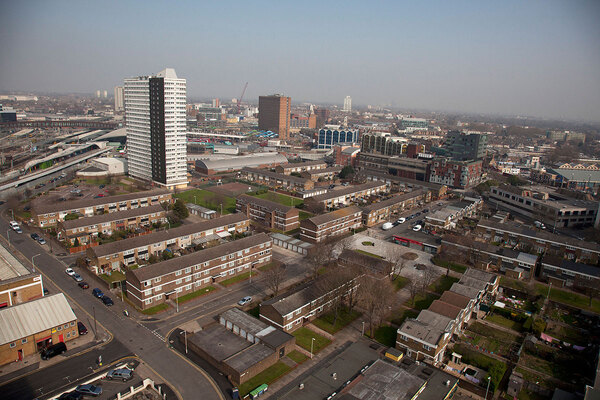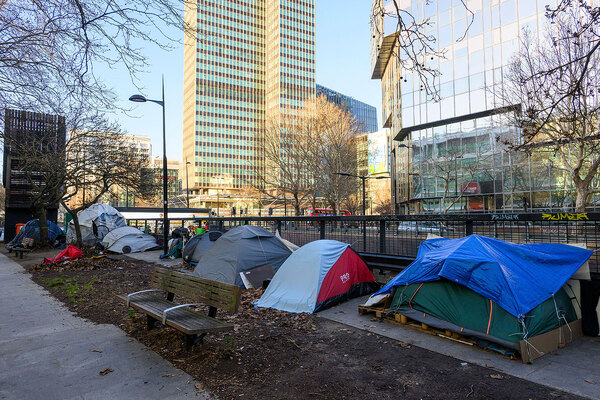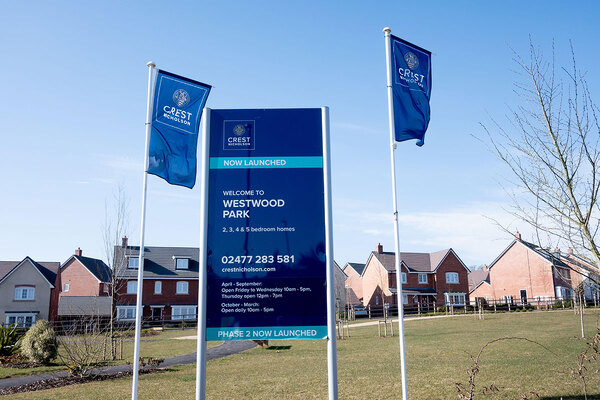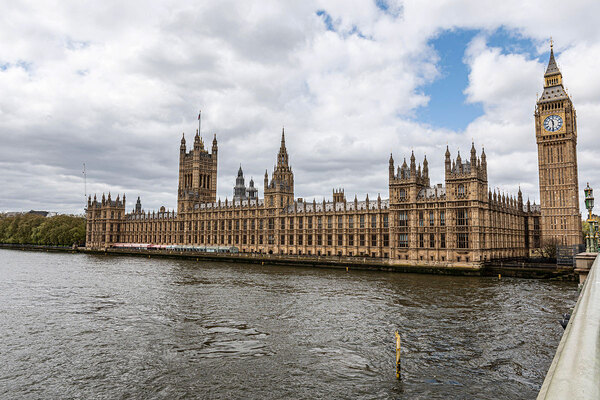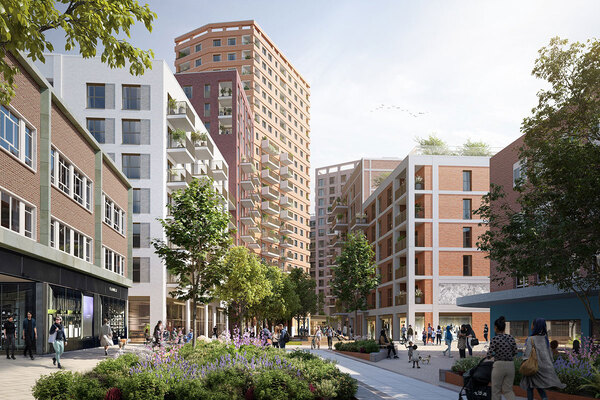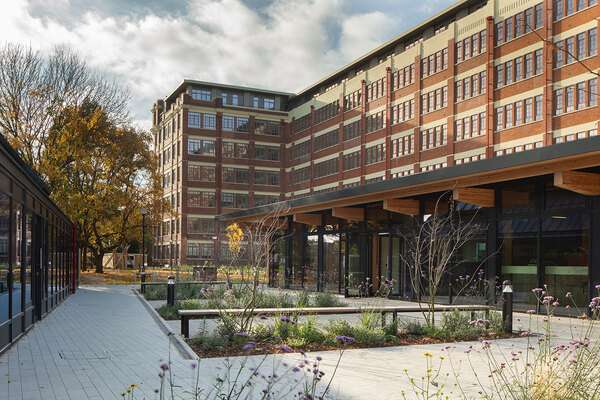Scottish housing minister: social housing is ‘build-to-save’
Paul McLennan has already made a strong impression on Scotland’s housing sector in eight months as the country’s housing minister. He talks to James Riding about social rent and Inside Housing’s Build Social campaign, how the government can bring more cash into the sector to meet its ambitious targets, the cladding crisis and more

“The best housing minister we’ve had for 20 years.” That is the verdict of one Scottish social housing source when asked by Inside Housing to describe Paul McLennan. It is remarkable praise for anyone to receive, but particularly impressive for a minister who has been in the role for only eight months, and an MSP for two years.
Inside Housing caught up with the minister via video call to find out more about how his new brief is going, what his aims are and how he has managed to win over the Scottish housing sector. We also wanted to know what he thinks of Inside Housing’s Build Social campaign for the UK to add 100,000 social rent homes a year.
On that last one, it is probably no surprise that a Scottish National Party (SNP) housing minister is broadly supportive of the campaign to get Britain building more social rent homes. “The first minister said it’s a key strategic objective for the Scottish government to deliver on our target [of] 110,000 [affordable] houses by 2032,” Mr McLennan tells Inside Housing.
And the Scottish government has promised that 70% of those affordable homes will be for social rent. That is, 7,700 a year. Build Social’s target for Scotland is asking the Scottish government to recommit to this figure.
On the broad principle, Mr McLennan is clearly supportive. “If you invest in housing, it’s a build-to-save,” he says – because of the money that is saved on homelessness and other services. In Westminster, he says, social housing has “dropped down the political agenda. Where we are, the political agenda around that is very, very strong”.
Yet getting to that target is looking harder than ever, with inflation driving up the cost of building in Scotland as it is in the rest of the UK, and indeed, internationally. These headwinds pose an almighty challenge for the Scottish government’s 110,000 affordable homes target.
Support for social rent
In October, the Scottish Federation of Housing Associations warned that the goal “risks becoming an impossible dream”; in private, many chief executives have lost hope entirely. Yet Mr McLennan is still bullish: “I want to see us reach that 110,000 target.”
Just 6,042 affordable homes were approved in Scotland in the 12 months to June 2023, a decrease of 22% on the previous year and the lowest annual figure since 2013. A total of 75% of these were social rent, the main affordable housing tenure that the Scottish government funds.
“There’s obviously an issue at the moment in terms of viability,” Mr McLennan says. Interest rates are impacting everyone and are “likely to be high-ish for another year at least”.
The Scottish government has recognised that new build homes alone may not get it to its goal. A £60m acquisitions scheme, allocated from the existing affordable supply budget, is expected to open by the end of November to help social landlords buy up empty and private sector homes to convert into social housing.
We ask if Mr McLennan would recommit to the SNP’s target that 70% of its 110,000 new affordable homes will be for social rent.
“Yeah, I think there are a couple of things,” he replies. “We’ve had to move [social rent benchmarks] out of the way” on certain schemes, he admits, because of construction inflation. He also points out that mid-market rent has its place in helping to increase viability for developers. Caveats aside, he says: “We need to focus on making sure that 70% in terms of social housing is delivered. That’s a minimum. I want to deliver beyond that. So let’s look at how we bring in additional monies to make sure we deliver beyond that.”
The minister stresses the need for an “all-tenure approach” but supports the aspiration and spirit of the Build Social campaign. He adds: “I need to make sure it all works. The key thing is talking to all local authorities. But in terms of what you’re saying about supporting it, yeah, 100%.”
Mr McLennan is the first dedicated housing minister Scotland has had since 2016 (over the years, the brief has oscillated from a bespoke ministerial role to part of the wider portfolio of a cabinet secretary). It was the decision of Humza Yousaf, when he replaced Nicola Sturgeon as first minister in March, to reinstate the position.
He believes Mr Yousaf chose him for the role that night in March because of his local government experience. “I was 15 years a councillor, up until 2022, and a previous council leader. Any councillor in any part of the UK will tell you that it’s always the biggest issue, homelessness and housing,” says Mr McLennan.
He has spent considerable time crossing the country, from the Borders to the Highlands, to meet social landlords. People working in the sector say he has successfully presented himself as a serious figure who grasps the financial challenge facing social landlords.
Born and raised in Dunbar, 30 miles east of Edinburgh, Mr McLennan joined his local branch of Bank of Scotland straight after school and began a 20-year career there, rising to client manager in the corporate banking department. He was elected to East Lothian Council in 2007 and led the council for three years from 2010. He has also been in and around the property industry, having worked on development proposals
at PR company Playfair alongside Donald Anderson, former Labour leader of Edinburgh Council.
His new portfolio ranges across the government’s Affordable Housing Supply Programme (worth £752m in 2023-24), cladding remediation and empty homes. However, large swathes of housing policy still rest with Patrick Harvie, the Green Party MSP who entered the government in coalition with the SNP in 2021 as minister for zero-carbon buildings and tenants’ rights. Does this ever prove awkward?
“No,” he says. He has regular joint meetings with Mr Harvie. “I’m two minutes away from Patrick’s office, I can literally just walk around the corner and he’s there.” It is a similar situation with planning, he points out, which is covered by another minister, Joe FitzPatrick. “We have joint meetings in terms of that as well… it works really well.” But what does he see as his defining mission when it comes to housing? As we discuss his various responsibilities, one comment stands out: “I need to bring more money into the sector.”
He has arranged a roundtable with Scottish Financial Enterprise and UK Finance to discuss how deals with housing associations are structured. “We’re pulling together all the lenders – Lloyds Group, Royal Bank of Scotland. Some of the building societies – 95% of the borrowing would go through these key organisations.”
Paul McLennan’s CV
2023-present: Housing minister, Scottish government
2021-present: MSP for East Lothian (Scottish National Party)
2016-2021: Consultant for PR companies Newgate, PPS Group and Playfair
2012-2016: Senior researcher for Chic Brodie and Kate Forbes, Scottish parliament
2007-2022: Councillor, East Lothian Council (council leader, 2010-2012)
1990-2010: Various roles culminating in business banking client manager, Bank of Scotland
He is also doing “a wee piece of work” with the Scottish Cities Alliance to identify the demand for mid-market rent (similar to intermediate rent) for investors.
Restoring balance
The minister has been putting out feelers. Jon Turner, chief executive of 10,300-home Link Group, says that Mr McLennan contacted his housing association because he had seen Link’s first sustainability-linked loan with Scottish Widows. “He was interested to ask us about what financing options we have [and] where are the barriers to bringing finance into the sector,” Mr Turner tells Inside Housing.
Tom Barclay, chief executive of Fife-based housing association Kingdom Group, says: “I have been impressed by his attention to detail and a desire to understand more about what we can work on more collaboratively to find solutions to the range of challenges we are currently facing as a sector.”
David Melhuish, director of the Scottish Property Federation, a trade body for developers, says that the minister has been “very proactive”. Mr McLennan has “a really important role to play in helping to restore some confidence and trust in investment in Scotland”, he says, which was “without a shadow of a doubt dented, big time, by the suddenness of the announcement on the rent freeze”.
Last autumn, social landlords were blindsided when the Scottish government under Nicola Sturgeon imposed an emergency rent freeze on the social housing sector. The freeze was scrapped in April 2023, but would ministers intervene in social rents again? “I can’t go into too much detail,” Mr McLennan says, “but it’s trying to get the balance again for housing associations and local authorities. It’s difficult when you’ve got the cost of living crisis hitting everybody at the moment.”
The centrepiece of this government’s housing effort is a wider housing bill, including permanent rent controls for the private sector and homelessness prevention duties for landlords. It was due to be published after the summer recess but has been postponed, although Mr McLennan insists “we’re looking to do that relatively quickly”. Institutional investors are not against rent controls per se, he says, but “they need to see what [they] look like”. The key is to strike a balance that retains investor confidence and gives renters protection.
Like the rest of the UK, Scotland is facing a homelessness crisis. At the start of November, City of Edinburgh Council declared a housing emergency, citing record homelessness figures. As a former councillor, Mr McLennan says he understands the impact homelessness has on people and the complexity of its causes. But as housing minister, he says: “I can’t reduce homelessness on my own.” He has set up a ministerial oversight group with 10 ministers, responsible for drugs, mental health, domestic abuse and more, meeting on a quarterly basis. The group held its first meeting about a month ago, on a call with Crisis and local organisation Cyrenians.
Mr McLennan has cladding on his plate, too. In his first week as housing minister, he sat down with developers to ask them to agree in principle to remediate their buildings with potentially dangerous cladding. The next step is to get them to sign a legal contract, a process that has proved arduous in England. But here developers already know the score, he says. “They’ve done it on a UK level. I don’t think it came as a shock that we’d be doing that at a Scottish level.”
A cladding remediation bill has now been published, giving ministers powers to order assessments and remediation without developer consent, and create a scheme for responsible developers that encourages them to stump up money for fixes. According to the minister, it will be passed “certainly before recess next summer”. “It’s an expedited process,” he says. “I’ve been closely working with political opponents.” Mr Yousaf has expressed interest in creating a building safety levy like England’s, that taxes developers to pay for unsafe buildings where no developer can be identified. However, Mr McLennan explains that Holyrood does not have this power yet. “We need to get that from the UK government,” he says. “That’s slightly different, because it’s more taxation.”
The UK government does not always give Scotland what it wants, to put it mildly. Mr McLennan has previously asked UK ministers to increase Local Housing Allowance and for additional borrowing powers around housing, but was rebuffed on both occasions. Yet on the building safety levy, he is optimistic that Westminster will be more flexible. “There have been collaborative discussions,” he says. If Whitehall did quash the measures, he adds: “That would put our sector in a really difficult position.” The key thing is, he says: “We all want to make sure [buildings] are remediated as soon as possible [and] people can remortgage, get insurance and sell their property.”
Add residents of buildings affected by the cladding crisis to the list of people who will be looking hopefully to see if Mr McLennan can deliver on his ambitious start as housing minister.
Sign up for our Scotland newsletter
Already have an account? Click here to manage your newsletters
Related stories
